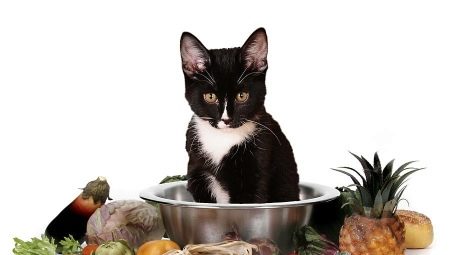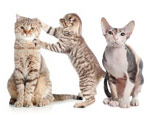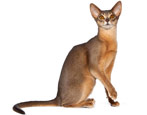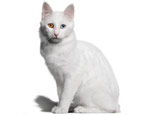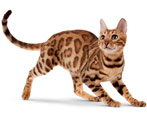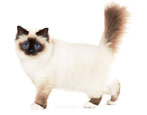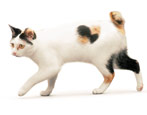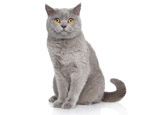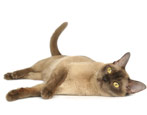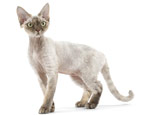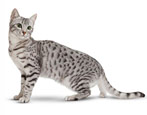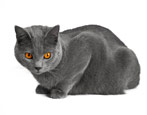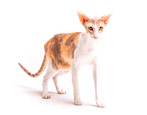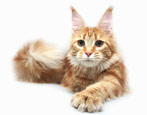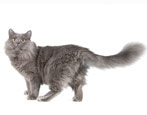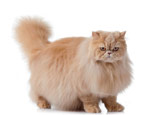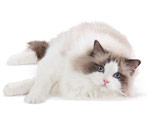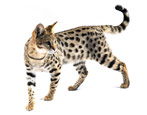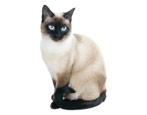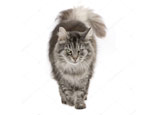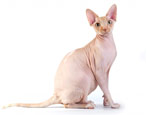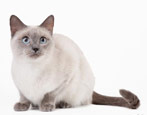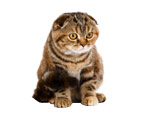Vegetarian or vegan food is a rejection of meat products and products of animal origin, for example, milk, eggs, cheese. People choose a vegan diet for ethical reasons: animals should not suffer for the sake of human taste preferences. A person can make up for the lack of vitamins by buying the missing elements, so the vegan lifestyle is healthy and does not harm the body. But if a person is omnivorous, then cats in physiology have always remained carnivorous creatures.
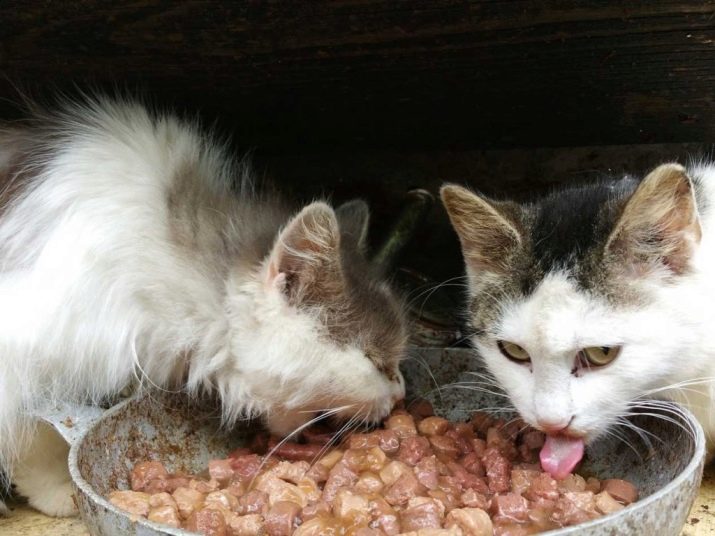
Features
Zoodefenders often argue that feeding carnivores with meat-free food is sacrilege and violation of pet's rights. However, protecting cats from vegan food, animal lovers do not think that hundreds of other living creatures are doomed to death by their protection. Vegans seek to stop the killing of peaceful creatures, and this is the main point of vegan food. The discussion of vegetarian food for pets has been ongoing for a long time.
Most often, in the conversations, the vast majority of people do not seriously consider the prospect of refusing to eat meat, let alone their pets refuse meat-containing foods. The decision will always remain with the owner of the cat, because he must accept responsibility for the possible deterioration of the animal’s health.
The only confirmed fact is that the feline organism in the process of evolution got used to the meat diet and for this reason it receives all the important substances from the meat.
There are examples of cats that do not eat meat and eat meat substitutes.At the same time, some owners incorrectly feed the cat with vegan food (too often or without vitamin complexes and supervision by a specialist veterinarian), which makes the transition to plant food difficult.
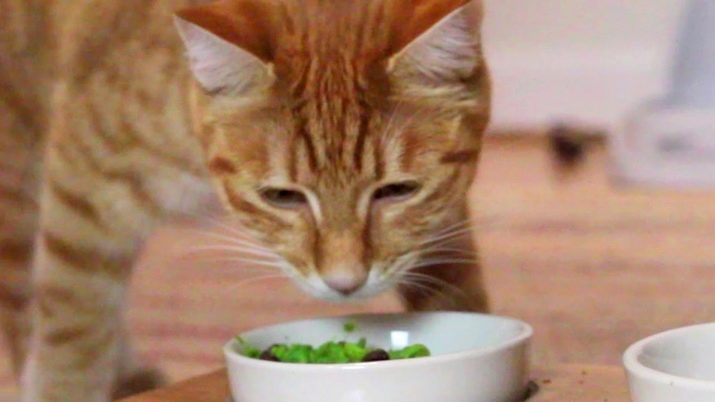
What's the Difference?
Often people are used to not distinguishing between two concepts - veganism and vegetarianism. In fact, there is a difference, and it essentially separates the terms presented. Vegetarian food for animals - food that does not contain meat. In such a feed, animal skin, crushed bones, and whey may be present.
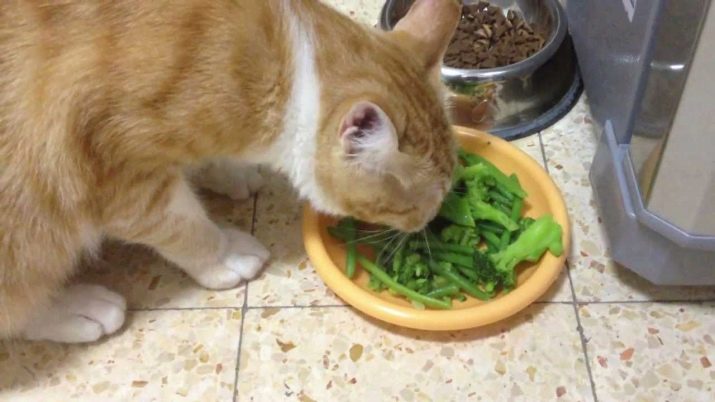
Vegan food excludes all products obtained through the killing of animals. These include, for example, milk, meat leftovers. Thus, vegan cat food is different from vegetarian. In the food industry for cats, there is no vegetarian feed, with rare exceptions, because producing such a feed is not practical.
Most often, the vegetarian alternative applies to cats that need an individual meat-free diet. Such a dietary course is carried out after heavy operations or in case of cat castration and does not last longer than a week.
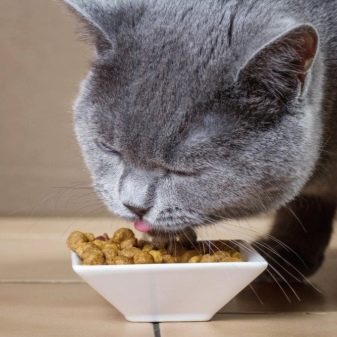
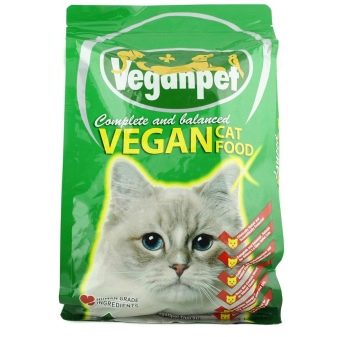
The simplest transition to food without meat is in dogs: they exclude animal products from the diet, while the cat needs to supplement the diet with probiotics and vitamins without any pain. The complexity is associated with the body of an animal that has been hunting for centuries.
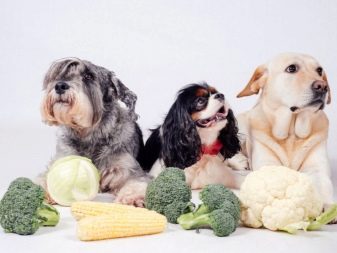
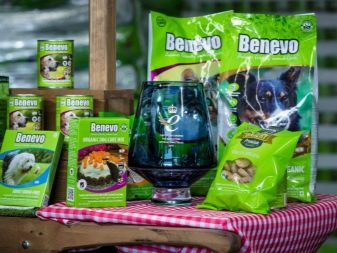
Selection tips
- It is more difficult to get vegetarian or vegan food in Russia than in other countries. To purchase this food, you need to find an online store that sells such food, and make a large order (from a few kilograms).
- The most popular vegan animal feed brand is Ami. The manufacturer’s assortment includes not only dry food, but also goodies, for example, algae supplements. Making a choice in favor of this brand means acquiring certified products.
- The main thing is to study the composition of the feed before buying. It is important to check whether all the necessary components are present in the composition, otherwise the owner will find food with a small amount of useful impurities. It is desirable to give preference to natural formulations without chemical components.
- In Russia, you can find domestic producers of vegan feed. To trust them or not is everyone's business. If the reviews and the composition of the feed are good, then you can safely order a small amount of vegetable feed for the sample pet.
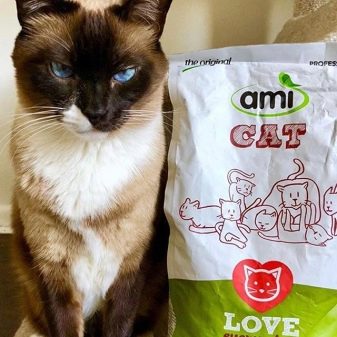

Common mistakes
When switching to a special diet, the pet needs increased care and attention when feeding. Many owners neglect the individual approach to eating a cat, which is why they make many mistakes. The most common ones are described below.
- Buying food without studying the composition. The specificity of vegan food requires the owner of the cat to carefully study the ingredients of all the feeds that are purchased to feed the animal. In reality, the pet owner often buys a plant-based analogue of meat indiscriminately, ordering the first vegan food that comes across.
- Random feeding. Even dry meat feeds need to be dosed and given to the cat at a certain time of the day, and in the case of vegetable food, you need to be even more careful when drawing up meals. Often, owners occasionally pour a little food into the bowl, which is a gross mistake in terms of proper feeding of the pet. Related information on meals on the label of a particular feed will help avoid the problem - the manufacturer indicates the required amount of feed and frequency of feeding.
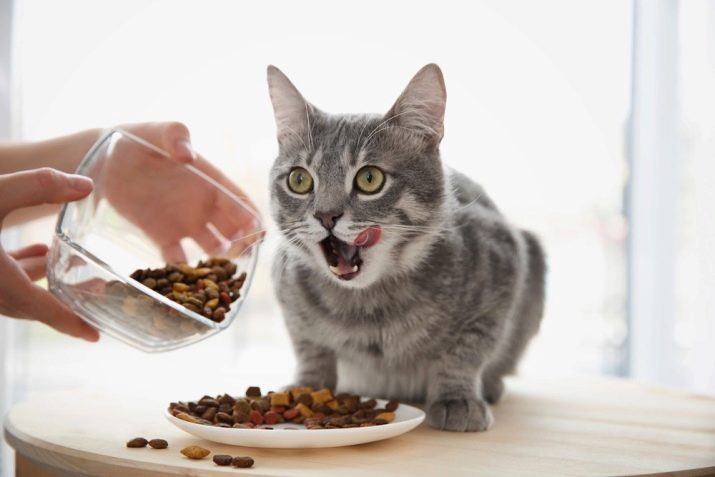
Benefit and harm
We are talking about the pros and cons for the pet - the expensive cost of vegan food will not be a minus, since this does not affect the cat.Also, there is no point in the pluses that, due to the rejection of meat feeds, the cat’s conscience will be calmer - a person calms himself and the cat does not think about the origin of the food at all.
pros
- Refusal of meat in dry or liquid food will significantly reduce the risk of infections in the body of the pet. The reason lies in the fact that even in prestigious and expensive feeds, meat from old and sick animals is used, which people should not eat as food. This meat goes through several stages of processing, during which it turns into dry cat food. In addition to vitamins, the cat risks getting serious diseases.
- Frequent nausea goes away if the cat goes on a vegan diet. The problem of meat in pet food also exacerbates digestion: the cat does not receive meat, but chopped cubes of bad meat product seasoned with chemistry. Because of this cat can feel sick - the body does not digest such a substance. With vegetable food for cats, everything is simpler: absorption is quick and painless due to natural components.
Before making a final decision, you need to weigh the pros and cons, as the transition to a different diet is an important step in the life of a pet.
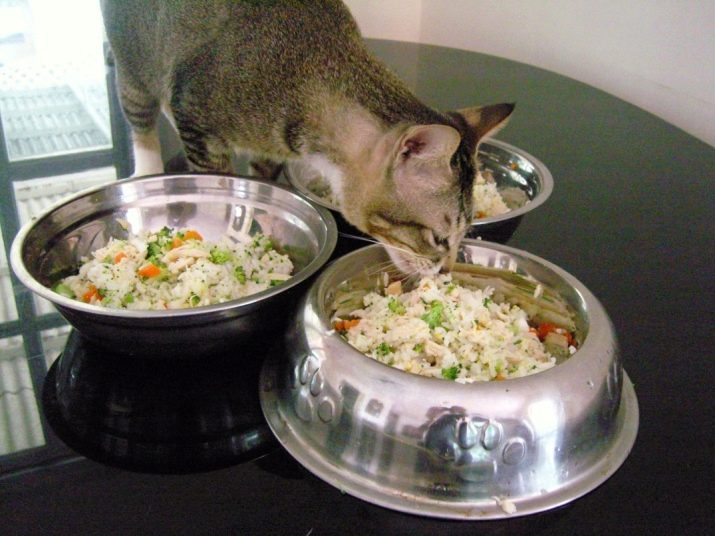
Minuses
- The cat family is predators. For many years, changes in feline nature have led the cat to be a carnivore. This suggests that it is extremely problematic to switch to fodder without meat. Even in expensive feeds, carcasses of sick animals are used, so there is a small percentage of meat products there. If a person decides to transfer a pet to a vegetable diet, he needs to consult a veterinarian. Also, every two weeks you need to visit the veterinarian and follow his instructions in order to avoid health problems.
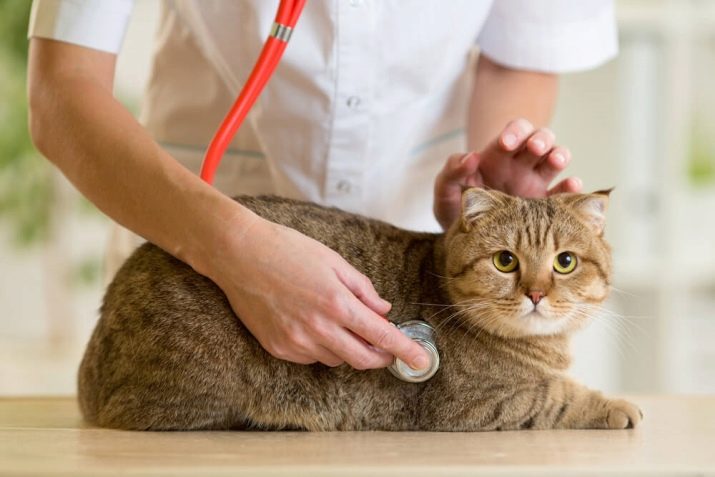
- Reluctance of a pet to eat plant foods. Cats and cats, in principle, do not like dry food. When the owner offers a plant-based food, cats most often react negatively to the diet. You can mix meat and vegetable feed with each other, gradually reducing the amount of meat.
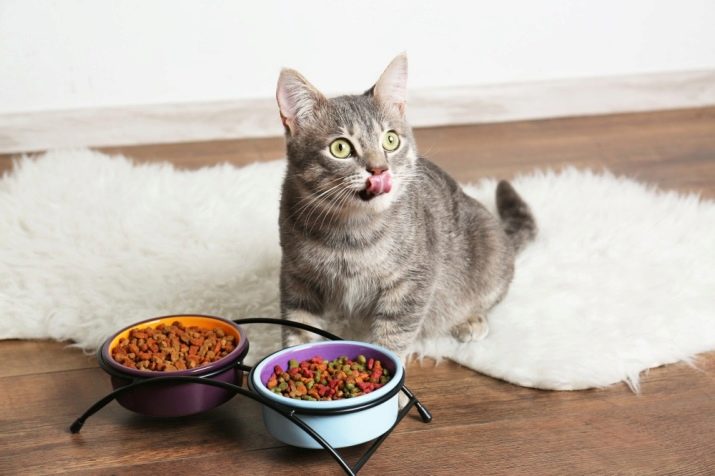
- You need to make a plan for feeding the animal carefully. Most likely, the owner of the cat will have to feed the animal once every few hours in the allotted portion to avoid malnutrition. In addition, the vegan diet does not include all the necessary substances for the cat's body. Every month after being examined by a veterinarian and tested, it is advisable to purchase nutritional supplements for cats - vitamin complexes will provide the body with the missing components.
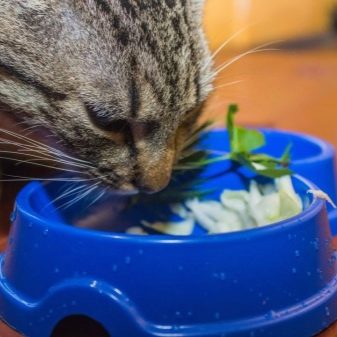
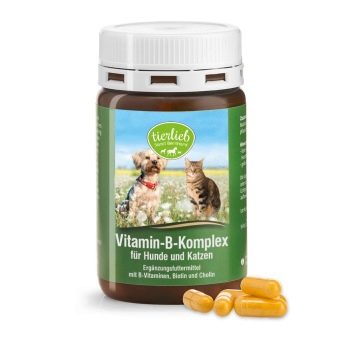
Is the risk justified?
After studying the above data, the question arises of whether to try to switch the cat's diet to food without meat. There is no definite answer, but if the cat appreciates the taste of such a diet, eating without meat will bring relief to the owner's conscience and improved digestion of the cat.
And although veterinarians unanimously reiterate that healthy development of a cat is impossible without meat, research on this topic has not been conducted. If you search, you can find the literary works of vegans who have studied the physiology of animals and offer their ideas on refusing meat in eating four-legged pets.
Conclusion: cats can eat a plant-based diet and still remain healthy if they are careful.
For veterinarian advice on feeding cats vegetarian food, see below.
